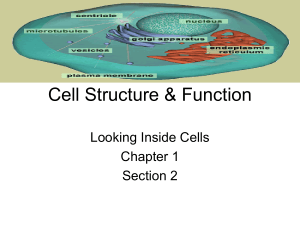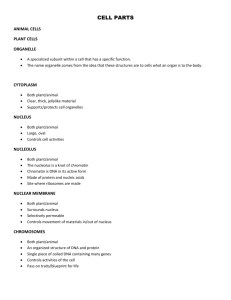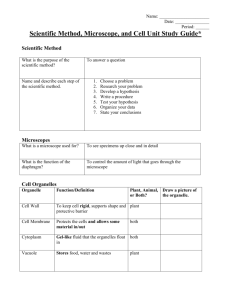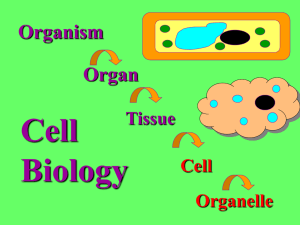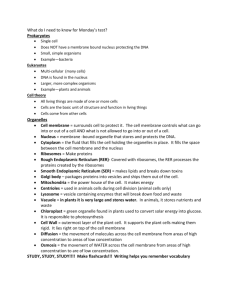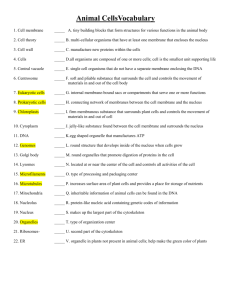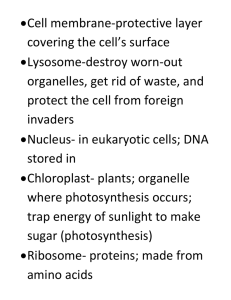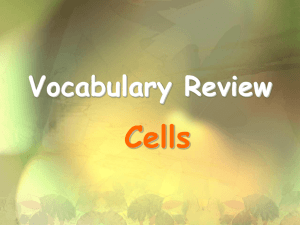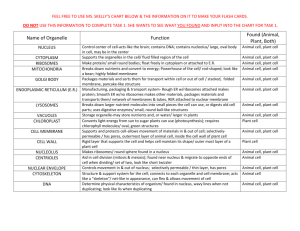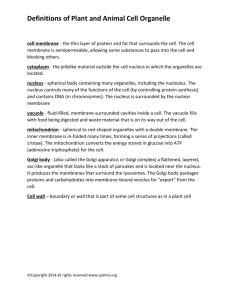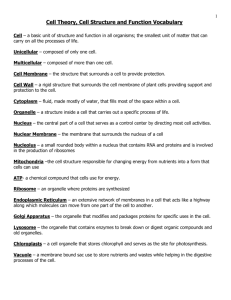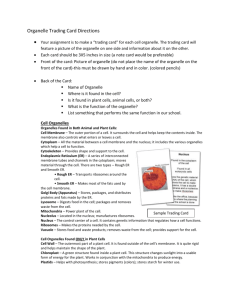Organelle bingo
advertisement
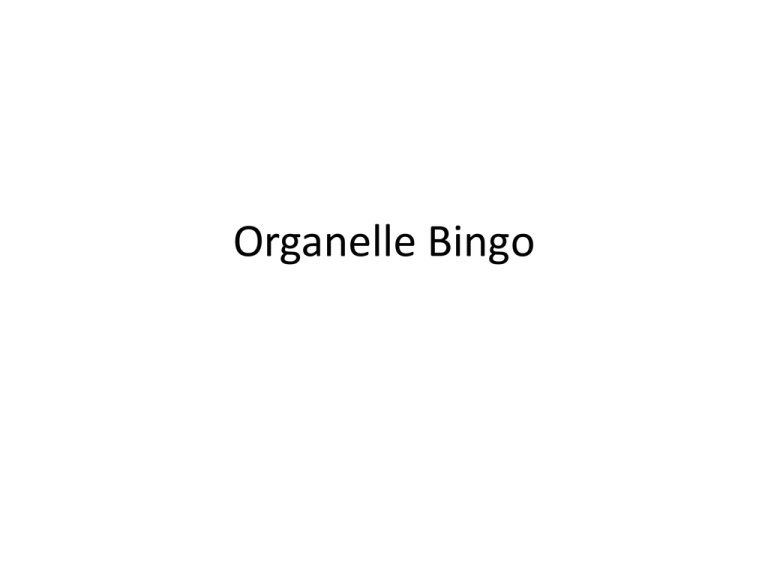
Organelle Bingo • The packaging/ distribution center of the cell. This organelle packages proteins. • Boundary of the cell that is selectively permeable. Made up of phospholipids. • Only found in plant cells. Is made up of cellulose and provides support for the cell. • The fluid matrix inside the cell that organelles are suspended in. • This is an inner membrane system that moves proteins and other substances throughout the cell. It is studded with ribosomes. • This is an inner membrane system that moves proteins and other substances throughout the cell. It is NOT covered with ribosomes. • This organelle makes proteins. • Only found in plant cells. These organelles harness the energy of the sun and convert it into energy the plant can use (photosynthesis) • Membrane that surrounds the nucleus. It controls movement of materials into and out of the nucleus. • These organelles break down sugar molecules into energy for cell use. • This organelle is often the largest organelle in the cell and it easily spotted using a microscope. It is the site of DNA storage and controls the cells activities. • Stored in the nucleus, this is a nucleic acid that contains genetic instructions. • They digest and recycle the cell’s used components. Breaks down larger food molecules into smaller ones. • This is a membrane-bound capsule that contains whatever enzymes or other substances have been transported through the ER to the Golgi body. • This organelle looks like a fluid filled sac. These organelles stores food, water, and waste. • These are long strands of amino acids that can take on many shapes. They are produced my ribosomes in the cell. • All cells arise from preexisting cells. • All living things are made up of cells. • The cell is the basic unit of life. • Simple organisms. DNA is circular. They do not contain a nucleus. • Complex cells that contain a nucleus. The DNA of these cells is linear and in the form of a double helix. • Type of eukaryotic cell that has a nucleus, cell membrane, and centrioles. • Type of eukaryotic cell that has a cell wall and chloroplasts. • Example of a prokaryote. • Carbohydrate that cell walls are made of. • Cell membranes are made up of a ______ bilayer. These lipid monomers align to form the semipermeable membrane. Answers: 1. 2. 3. 4. 5. Golgi apparatus Cell membrane Cell wall Cytoplasm Rough Endoplasmic reticulum 6. Smooth ER 7. Ribosomes 8. Chloroplasts 9. Nuclear membrane 10. Mitochondria 11. Nucleus 12. 13. 14. 15. 16. 17. 18. 19. 20. 21. 22. 23. 24. DNA Lysosomes Vesicle Vacuole Proteins The Cell theory Prokaryote Eukaryote Animal cell Plant cell Bacterial cell Cellulose Phospholipid
